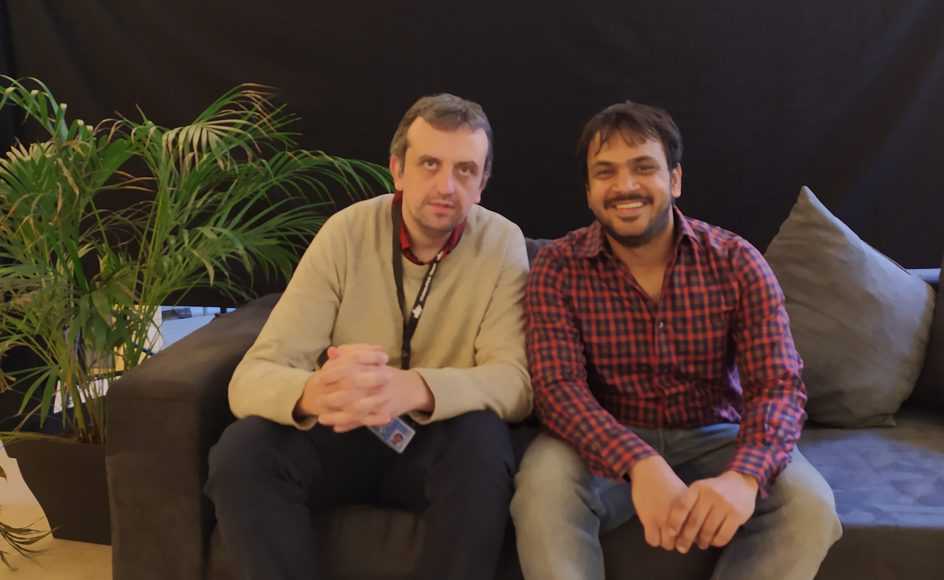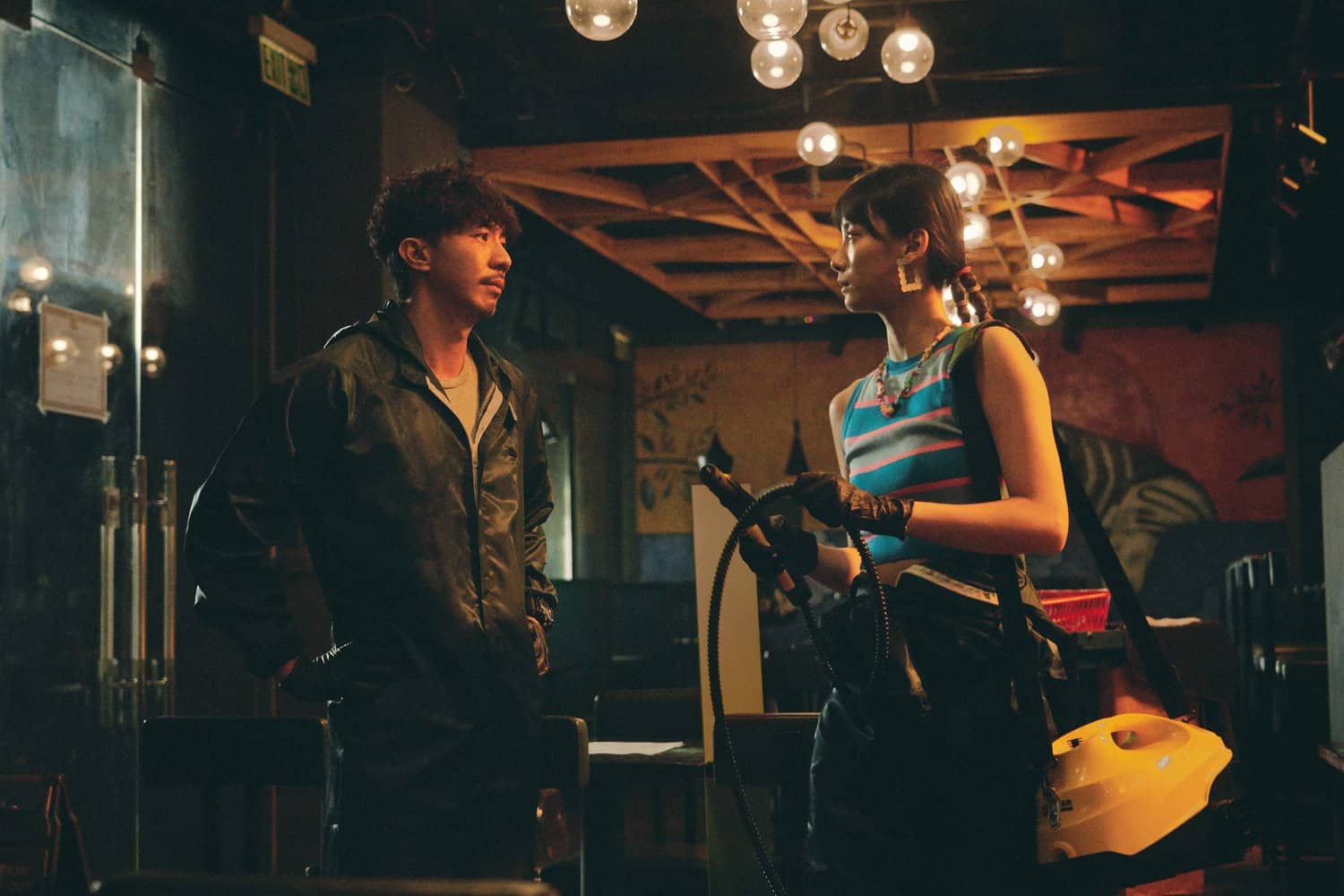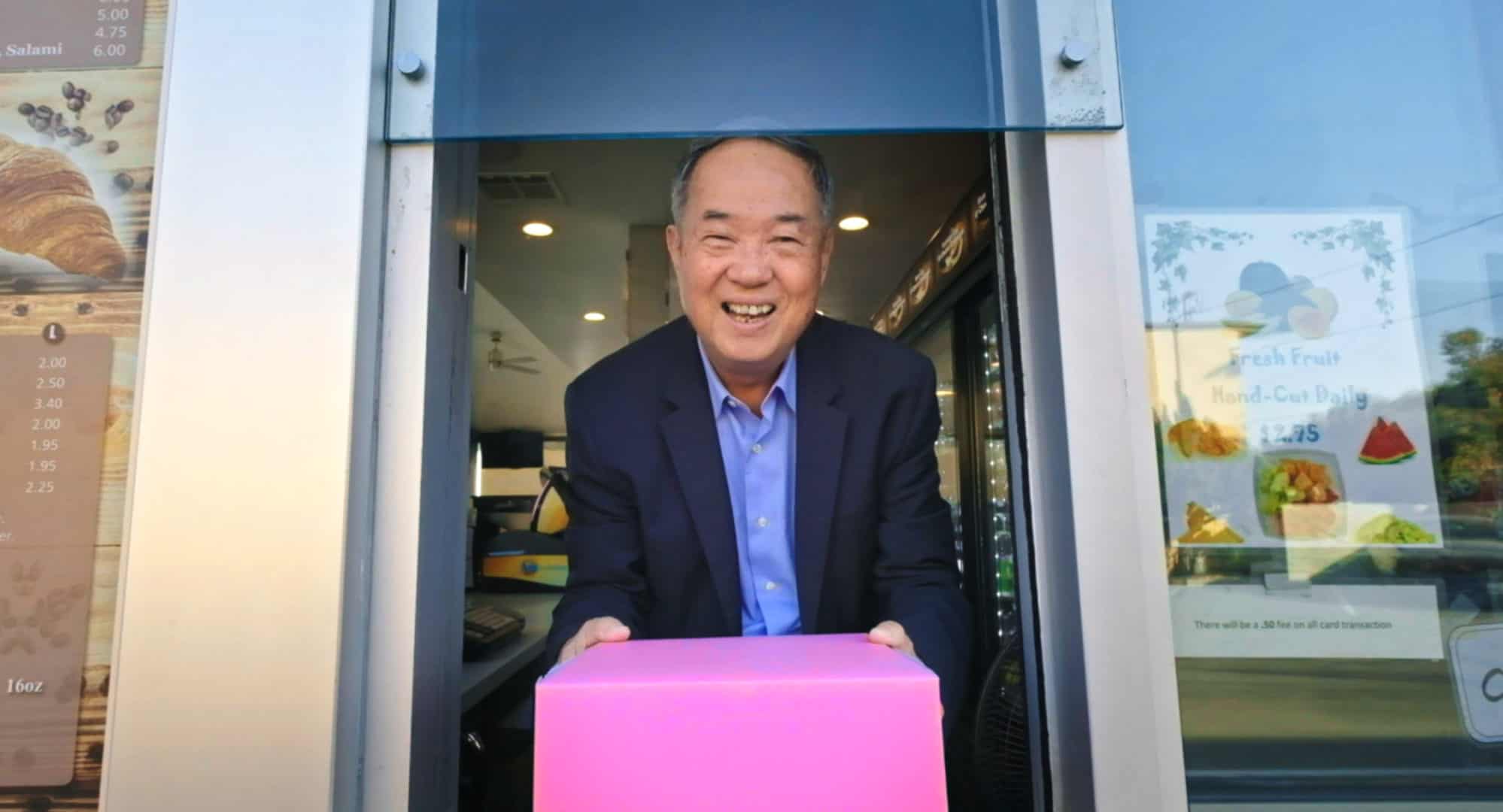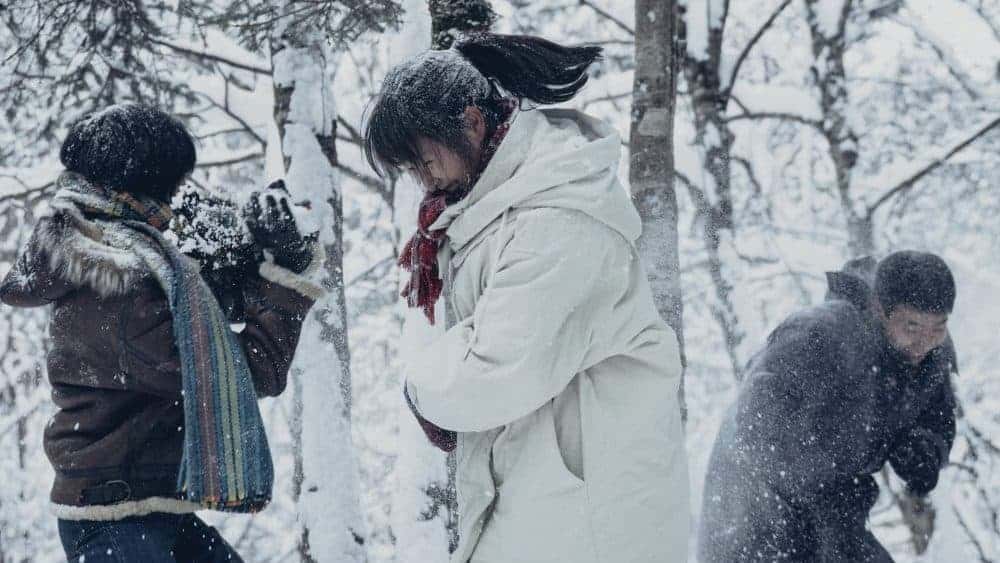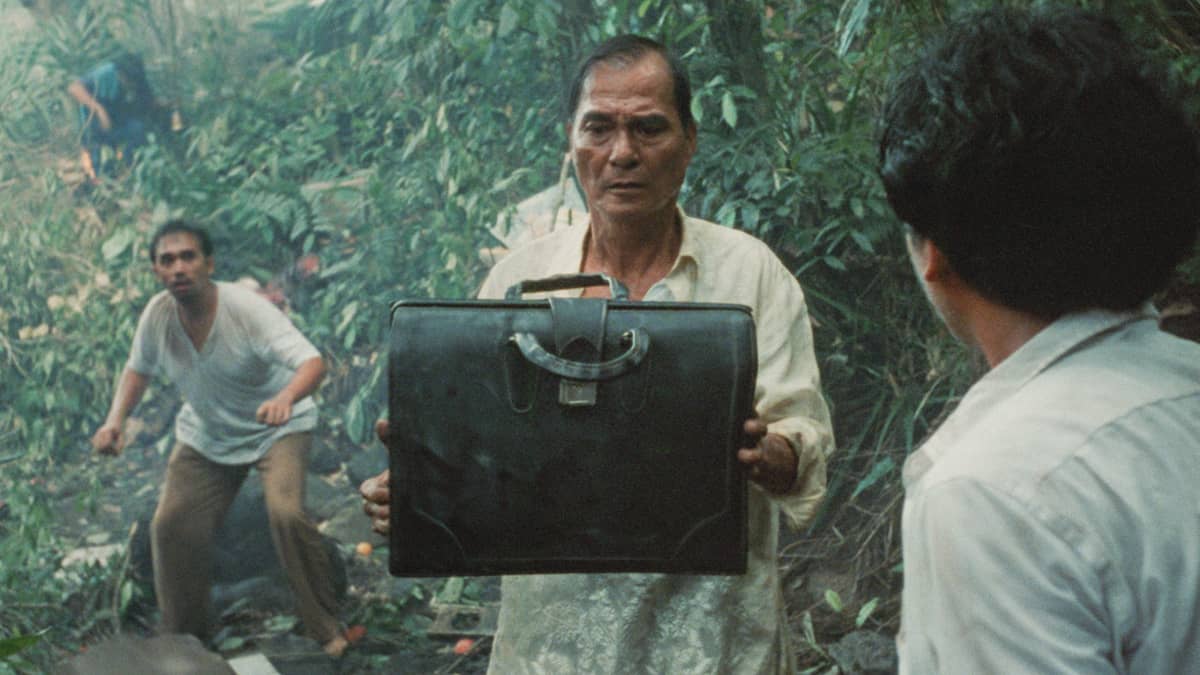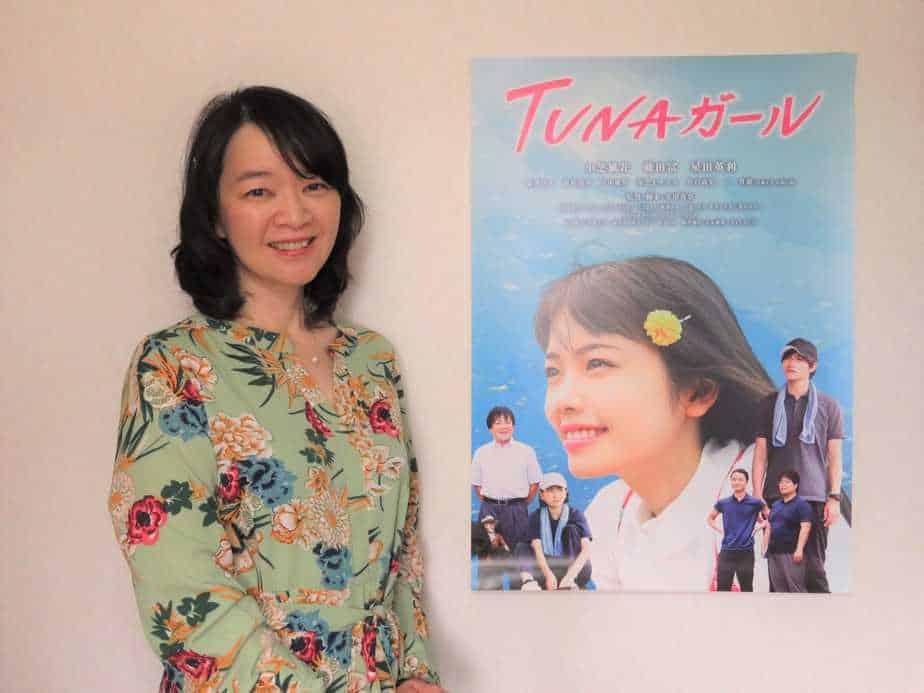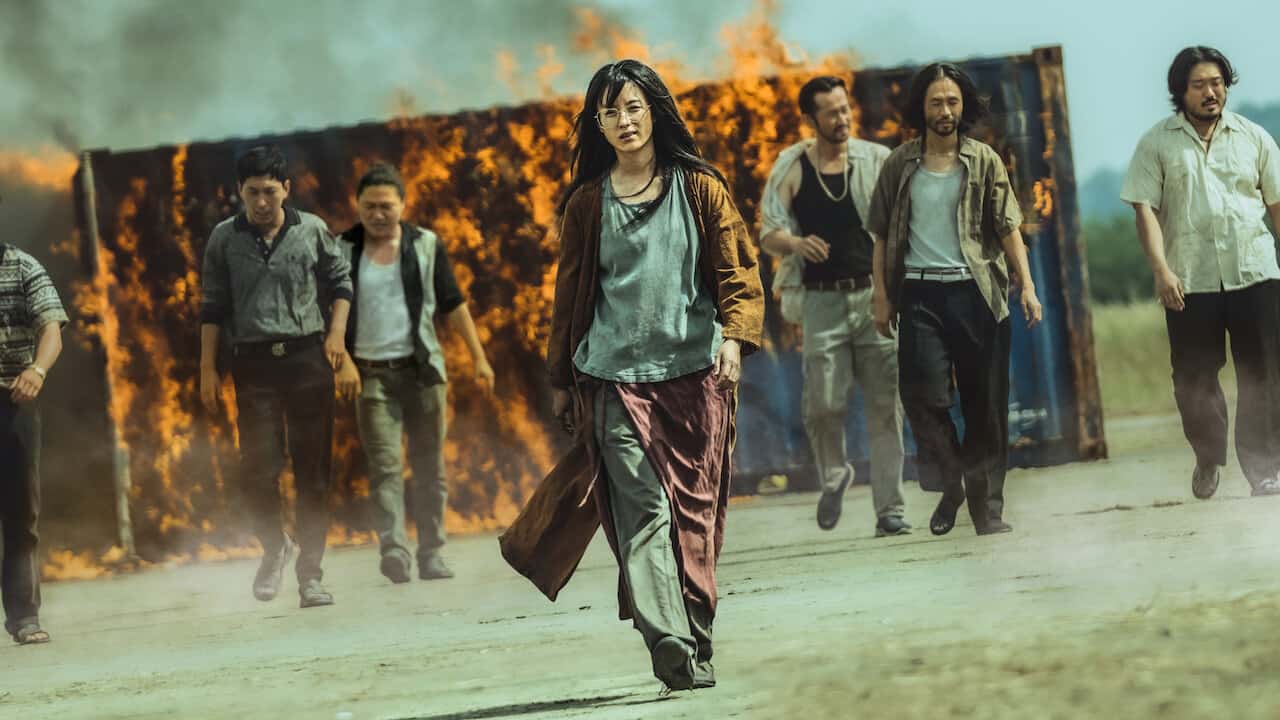Kislay was born in 1988. An independent director, he studied at Film and Television Institute of India where he graduated in editing. Before moving to films, Kislay was an active member of the Delhi theatre community and directed five plays between 2006 and 2010. He has made three independent shorts and co-wrote Yvan Ayr's “Soni“. “Just Like That” is his debut feature.
On the occasion of his movie “Just Like That” being screened at 26th Vesoul International Film Festival of Asian Cinemas – where it earned the Grand Jury Award and an Inalco Special Mention – we talked to Kislay about his theatrical upbringing, women becoming invisible after a certain age, violence in Hindu society and much more

You worked in theatre before you moved to cinema. How did that help you as a director?
Yes, I think it helped because I wrote my own plays to allow them to play to an Indian context and this gave me an idea of how the narrative and structure flows. You keep working on plays, you perform and then you see all these reactions and see that something is working and something is not and then you change the structure, you keep changing things to see how they work and so, working with a period of time gives you an idea of how the narrative will flow from one thing to another. Another crucial aspect is that it gives you confidence to work with other actors, like actor training, because sometimes actors are not able to perform so you can pinpoint whether the pause is correct, whether the tone is correct or the gaze is somewhere else. Lots of small small things, especially with actors, this theatre training helps a lot.
You also co-wrote the script of “Soni”.
I was working on the script of the film and the producer came along; then I met the director and thought it was interesting. He already had a lot of the structure of the film in mind and then when we looked over everything and decided to unlock the characters a little more. So it was fun, also because I was living in Delhi, generally the whole experience was a lot of fun, we collaborated on what sort of things to add to the characters, what kind of scene this character can play etc.
This film and “Soni” are different, but both are about the problems women face in everyday life. Why this issue?
I think females, especially in non-Indian society, have to live different lives, the family structure is such that you have to operate in a different way over there, regarding the expectation of the family, for example. Then when you go out, there's a different kind of world and then you have to reenter that zone. It adds many layers.
My mother has also been working with feminist organisations. Just looking at the people she met, the kind of things she shared, that also had some influence on me. Generally I thought the director already had a script in mind and then I just put my ideas into it together with him. Regarding my film, I thought that one doesn't see old women in Indian cinema; even if it's about a woman, usually it is a young woman and it was interesting to see a point of view of an older woman.
Generally in India, many people feel that after 60, your life has to follow a certain road, particularly for women. They are respected and praised for their self-sacrifice and their giving nature. I thought it would be interesting if the mother figure would start doing things that aren't according to social expectations. If it changes, then all that respect, that aura of self-sacrifice, it all disappears. So I thought it would be interesting to see how that takes off, because Indian society has been going through a lot of things recently, especially politically.
There is a lot of repression and people are being killed in the name of religion. So I've been trying to show that period and I've been trying to understand what it is in the nature of family or our society that makes such things possible. And I think there is a history behind it and I thought maybe to explore it through the point of view of an old woman. I also wanted to understand other characters as well, not to demean them, but to also understand the context of where they are coming from.
About the role of these women, are they expected to be invisible at that age?
Yes, usually. I mean you will expect them to show all the love for their family but they are not expected to participate in any decision-making. The family will take the decisions on behalf of them. Usually their lives are lived as such, except for a few occasions like religious ceremonies where they will get importance because tradition allocates them importance. So if you are in a religious domain, you will get respect as a person who is supposed to tell about traditions, but outside that religious perspective, you are supposed to be invisible, whether it's financial decisions, economical decisions, or going out and such things where you are expected to follow what the family tells you. And after the death of the husband in Hindu society especially, you are not even supposed to wear bright clothes or just go out and do things.
Obviously, things have changed a lot. Today's context is different than 50 years ago, but still, largely you are not supposed to wear bright clothes or have other male friends, or you can only go out in a religious context. You'd meet your friends when you are going out to the temple or other religious rituals. Nobody says these things, but that is the overall moral consciousness and society, more or less, operates on those principles. So it's unsaid, but given. If you break these “rules”, then people will get very angry.
My guess is that Mrs. Sharma represents the protagonist's past. She is how she was when she was young and that's why there is a kind of sympathy and they understand each other, right?
Yes, that's true. The story is inspired by a German story by Bertolt Brecht. I was interested in Bertolt Brecht because of my theatre days, when I read a lot of stories and plays. It's a two-page short story where Brecht is juxtaposing the past and present. When I was writing the script, I thought maybe one idea would be to show her past, almost as a flashback. But then if you show a flashback, the flashback becomes an event as such; it doesn't remain mundane and becomes something significant. So I thought instead of doing the flashback, I'll add this character and so the story is of Mrs. Sharma, the wife of Mr. Sharma. In that sense, the daughter-in-law is also Mrs. Sharma. So it's like generations of women going through cyclical things in different domains. That's why at a certain point, the daughter-in-law also says, “I'll become like her” and gets angry.
Usually, in the tropes of Indian storytelling, the daughter-in-law is always pitted against the mother-in-law, so I thought rather than taking the traditional route of them quarreling with each other, at some point there should be some scenes of sympathy and understanding that she has gone through the whole cycle and now her daughter-in-law is going through it.

At some point, her male friend, says “doing what one feels like is not an option we have”. Would you say that is the main message of the film? For people of her age or in general?
Yeah, I mean I didn't want to keep any character pure, whether old or young, whether they are changing or not, we all carry our biases within us. The character of the tailor is Muslim, and that community is stigmatised a lot. It's facing the brunt of the majority in Hindu politics. So I wanted to explore him, but also show that the males in that community are very conservative. And when he says this line, “when you have money, you can afford certain luxuries” and she says “Your niece wanted to just have tea” and he says “you might have that luxury but the kind of society we have, if we go out and do it, the society will immediately rebel. She won't get married.” So it plays both ways in the sense of showing his own conservatism, but also showing this reality which is very different from the middle class locality of the protagonist. I wanted to underline that she can get away with this luxury and even though people are angry with her, they are not going to beat her, but in a different kind of society, they may not have that luxury.
What is the role of the three people that come to the house and speak with the father?
In some sense, they represent society. They are the old upper-caste people. Usually within these middle class societies, there is always the culture of co-operating, doing various things for the colony, like building a park, organising something on the religious lines in their society and they are the sponsors of these things. If you see, there is also an old woman who is a part of the group. Her presence shows that if old women conform to the norms of society, they can have the power to tell others what to do or not, and that is why they are the ones that are most concerned about what the protagonist does. Because what she is doing is against what her husband stood for, since he was a nice and religious man and stood for all these things. They are friends of her husband, and they are angry with her. They represent the morality of older traditions and that's why they take things under their control.
Also, one of the older guys is a colonel, through whom I also wanted to show the upper caste Hindus with an army background trying to implement their own order to society. In the script, it was a big scene, not just as a scene but everything was built into it. But then our film was stretching and becoming long so we cut it out and only kept that crucial part.
What is exactly the work situation of the father? He works on a public radio and he wants to be permanent employee but he's on a temporary contract?
It's not easy to get a permanent job in India and a lot of people get working as contractual employees, hoping that when the post gets vacated by the older people, they will become permanent. But what happened was that after a point of time, the government just closed, so the people retired and no new vacancies were opened. So many people have been working for 10-15 years in an underpaid job hoping that they will become permanent and they will have the security of a government job, which has not been coming and I wanted to explore the kind of pressure that he is facing.
In another sense, in smaller towns, the big companies and international brands are coming up, and even for a small town they open up possibilities of consuming things. So children grow up in that environment. Earlier they did not have many options of consuming things, but now everything has opened up. Thus the desires become universal but the money to obtain those desires doesn't exist, which leads to frustration. I wanted to show him desperately trying to manage his family but failing, as a result of which he becomes more depressed without expressing what he's feeling. His only way of expressing his feelings is anger; he will suddenly just burst out and say “I will run away” etc, because he can't share those frustrations with his family.
So he could not tell these things to his wife or discuss them with her?
No. In fact, when I showed my film to some of people who are not from India, they kept feeling “why can't he just share his feelings?” and I said that in that kind of society, it never happens. The male figures will never share their weaknesses. They will flare up and if the family is concerned, they might figure something out, but they will take it upon themselves to deal with the financial problems of the family. And that's why the anger comes in, he keeps getting depressed and he keeps going into his own zone. I don't know how much it is conveyed in the film, but in my mind the son observes this and feels that his father is not up to the task of either controlling his elder sister or his mother and that is why he keeps trying to punch above his value and control things.

I didn't understand if the man who he hits is the tailor or his sister's boyfriend.
It was the tailor. He hits the tailor finally.
Does he kill him though?
No. I mean, I kept it ambiguous but he hits the tailor. You will see a lot of such cases happening all over India these days. There will be one rumour or something and young people, mostly unemployed, driven by a certain kind of anger, will just go out and hit people.
But why does he take a selfie afterwards?
That's the new thing. They don't just hit people but also want to advertise on social media that they've done such a thing. That's a very common phenomenon. It's a way of showing off. If they don't show off, the deed has no value. You have to do it and show to the world that this is what will happen if you do it. He is a young guy and, probably, will have seen something like that, so that is his gesture too.
There is this joke the tailor says about three wives and one public servant. Can you explain a bit?
Yeah, that's a given. In the Hindu social mind, a Muslim man will have three wives and some fifteen children. The Hindu fundamentalists say that the Muslim population is increasing and that is why the Hindus have to fear for themselves because the Muslim has three wives and will produce fifteen children. Even if one doesn't believe it, but a Muslim person will tell him that he has three wives and so many children, it will be taken for granted. It will never be questioned. And so far, with the audience's response, they always assume. So what you consider a lie, like when he says my son is a bureaucrat, then that's the expression of a lie, because they don't expect a poor Muslim to have a son who's a bureaucrat but they expect that it's perfectly normal to have three wives and many children. It is a joke about stereotypes.
Can you tell me a bit about the slapping scene, where the brother hits the sister? Was it difficult to shoot?
It was, especially for the actors because it was a real slap and the girl kept getting hit, but thankfully both actors are from theatre and have performed a lot of plays. In a play, you always get hit for real and end up doing 50 performances so in some sense you expect that to happen. It was difficult in the sense that the boy had to coordinate his movements because he does it in the spur of the moment and then gets scared as to what his sister or family will do. And then slowly he comes to terms with it, because nothing severe happens. So it's a big jump in his character from before to after that. The actor had to not show it too much and have that transition internally and have the right kind of pauses. So that took some time to get right.
Can you also tell me more about the casting of the old woman and the father?
We had many auditions because we did not want to specifically take professional and famous old actors because then people identify them as such. We wanted to have someone who was not known. We also tried non-actors. The only worry was that it will be a tiring shoot and we were shooting in extreme heat (45C degrees). So we were not sure it was ok for an old person to bear that grind. Finally, just one month before the shoot, we ended up finding Mohini Sharma and she was fabulous. She is a trained actor and studied in the National School of Drama, which is a very prestigious school for acting. She also worked in some television shows and for the past six years, I think, she was working occasionally.
How old is she?
She is 74. We were very glad that we found her. She was very willing. She is from the Northern region, not near us. She lives in Bombay but originally comes from Kashmir, which is up north, but the dialect is very different. So we were very focused on getting the dialect right, the exact kind of Hindi which is spoken in Uttar Pradesh, where the film is set. So we were very lucky to have found her and eventually it worked out well.
And with the father?
Also a very interesting story. Initially, we picked an actor but he backed out at the last moment. Then again we picked another person who was a non-actor, but when we took acting workshops, I wasn't very happy with his performance. One friend suggested Harish Khanna and he has worked in many Bollywood films so I wasn't sure if he would like to work in this kind of a setup. I just gave him the script, he liked it and we didn't even have the time to hold proper auditions with him but I liked his look and we had no options. So we asked him to come and he came in the middle of a shoot and immediately got the sense of it. With trained actors, one good thing is that you can do long takes and they understand exactly what you want. So he could give the exact kind of pauses. It was a pleasure working with him.

In general, would you say that Indian society is a violent one?
That is a very good question, because I want to explore the nature of violence. It's not evident all the time, but certain things happen and you can see that. But even in the daily routine, daily living is violent and why it is so is one question that I keep thinking about. I don't know, maybe it is because of the hierarchy between individuals or the caste system. One of the Indian intellectuals calls it the Great Indian Inequality. People are graded in different segments in the Hindu social order. So this is one idea that I want to explore over different films- the violence which is just around the corner and why it is so.
Indians are usually famous as non-violent people because of Gandhi but I think Gandhi understood that there is so much violence that if it sparks, it will engulf everything. So then he tried to strategically make it non-violent and make people act in that way. But if you see immediately after the independence, riots broke out and people got killed. So there is still deep-rooted violence. I do not know why it is there. Maybe it is because of extreme inequality, lots of poverty or people just trying hard to get on with their daily lives. All these reasons contribute. It's not without its reasons, but yes, this is what I want to explore, because this is what we have been seeing in the last few years.
Many liberal Indians are also shocked with the extent in which things have changed so drastically in the last ten years. Every month, we hear about people being lynched because there is a rumour that they eat beef, for example. Chaste Hindus don't eat beef, so just because of a different food habit, people are getting lynched and killed every month. And this has become a routine now. So everyone is shocked with what is happening and what the role of the state is. The state is obviously supporting it and not doing anything to contain it; they are hand-in-glove with those people. But beyond that as well, one has to see that when this type of government was not in power, it was almost like violence was waiting to flare up and people had to try hard to contain it. So that's something which I want to explore over and over again in different films to try and find some answers.
What is the situations with the Muslims after the new law was passed?
The good thing is that there are wide-spread protests. Hindu fundamentalists say that they are trying to save and liberate Muslim women, which is why they pass such laws, because Muslim society is conservative and the Muslim woman is the most oppressed. Now, what has happened is that when protests first started out, the police brutally hit everywhere in the Muslim locality, even where there are 14-year-old boys, who were just seen as Muslim males. As a result, Muslim women started coming out because the males were just getting hit left, right and centre and now the Muslim women have taken the lead in the protests. So that's a huge plus, but what has also happened is that such protests become a way of dividing people. Again, it's like people against their own people. There are lots of protests, but some people are also silently questioning why these protests are happening and thinking that that if these people want to protest, they should go to other countries. So there is a deep polarisation taking place within the society. Ultimately, that benefits the ruling party, because it wants people to be polarised along those lines.
They are convinced that if the people are polarised they can control them more easily?
Definitely. So it's a bad situation right now. Hopefully, these protests will lead to things changing.
Are you hopeful?
I am a pessimistic person overall, but the good thing is that things are not quiet. Lots of bad things happen and you don't hear any protests on the streets against it, so you feel like everybody is ok with it. So when you see lots of people protesting in towns small and big, you realise that there are people in numbers who are opposing these things. It's another matter that there are still large numbers of people supporting these things and have these deep biases in their minds. So in the long run, unless this deep bias changes amongst the people, unless the emptying of a mind that gets flared up because it sees a Muslim eating beef, this problem will remain. So it will take time, but at least something is happening about it.
A couple of generations, maybe?
Yes, if it happens in a couple generations, I will be very glad. India is the youngest nation and fifteen years down the line, I think it will have the highest number of people under the age of 35. So lots of young people who are small kids now will grow up and become that. So you have to stop it right now. That's why in the film also I tried to show that the boy is the most violent. So you have to focus on those boys who are in class 7th or 8th and make sure that these deep-seated prejudice goes away.
What is your opinion about the Indian movie industry at the moment?
There is a regression at the moment. Indian movie industry was always big and catering to a very diverse kind of people, from the person who works as a labourer in the construction industry to an industrialist. So earlier, it used to cater across class and caste and the whole of India. So it had to take a largely liberal line, like after all, Muslims and Hindus are brothers. This is what makes India unique, because it has diverse ethnicity, languages and religions yet everybody lives together. So it had that kind of rhetoric in its essence. Now, it's a Nation-first approach. In the last five years, you will see lots of films on India attempting a mission to the moon, a mission to Mars, Indian soldiers going to war against Pakistan. They have taken up a nationalism-on-the-sleeve line. From ten years ago where it was a very liberal, universal line, now it has come to this; it has changed in the last five to seven years. That's a really bad thing.
The other bad thing is that the Bollywood industry, because of its mass appeal, removes the particular footprints of a region. Every region is diverse and different and has its own dialect and problems but they are not concerned about that. What they are concerned about is a big projection. Because of that, you don't see particularity in Indian movies, especially in Hindi films. They are all based in Hindi regions, but there's nothing specific about them, as such. On the other hand, the good thing is that it gives employment to a lot of people. It's hard to be creative and survive. So lots of young people are able to go and earn a livelihood from them. Hopefully they will change. it is still a very star-driven industry; the stars matter the most. So even good directors don't get the freedom to operate, if they are not valued in the hierarchical level. If you have a star and you have song-and-dance, more often than not it's a guaranteed hit film. Hollywood, for example still has some bit of value for the director, but not Bollywood. That, I think, is missing. Maybe it will change, let's see.
Are you working on any new projects now?
I've started thinking. The concerns come first, like what I was telling you about the questions of why it is violent and what has changed. So I have started thinking broadly about the research part of it. Now I am going down to the point but I think it will be a long writing process.
So you will continue to do movies and not theatre?
No, I am enjoying what I am doing right now. So I think I will continue doing movies and also I did theatre at a very basic level. I have seen friends who are doing theatre and are now thinking in much more complex terms about theatre. So I am not aware of that, what I did was very basic. So I don't think I have that kind of confidence to do it.


